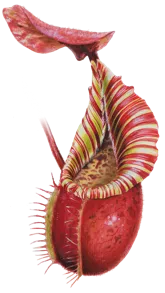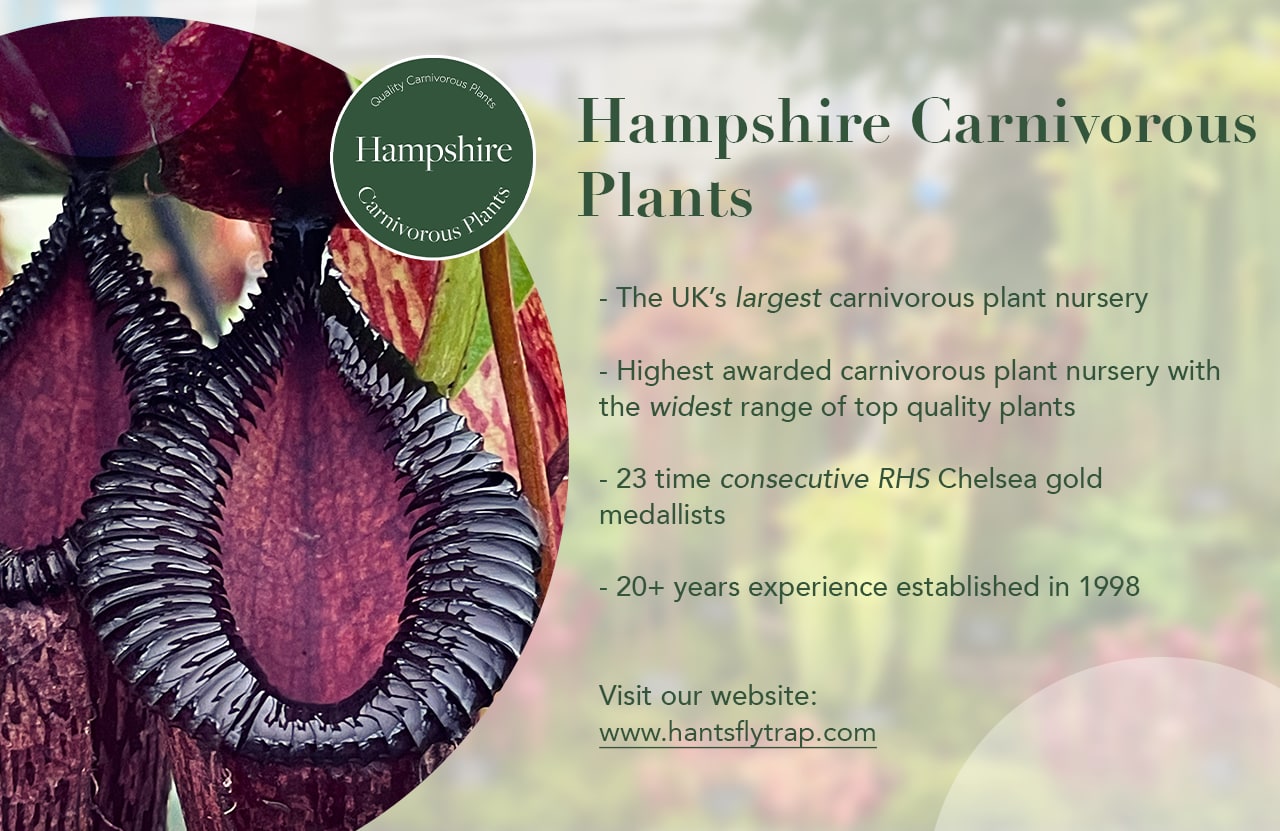Nepenthes maxima
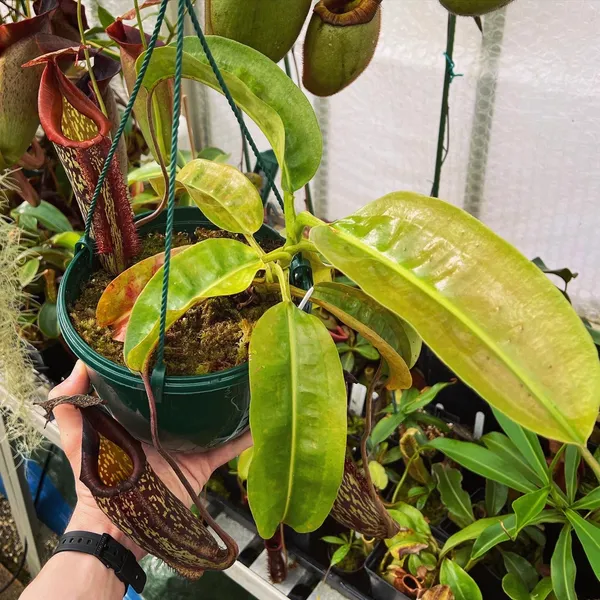 A very attractive form of the species! This is a long-discontinued clone from a nursery in Holland
A very attractive form of the species! This is a long-discontinued clone from a nursery in Holland 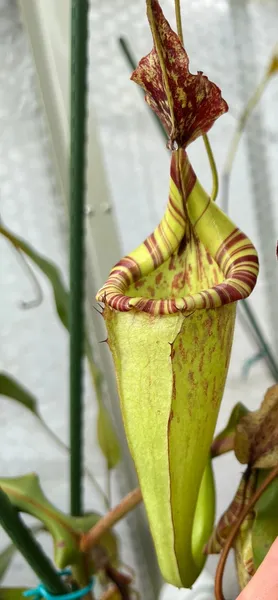 An upper pitcher on the same BE clone
An upper pitcher on the same BE clone 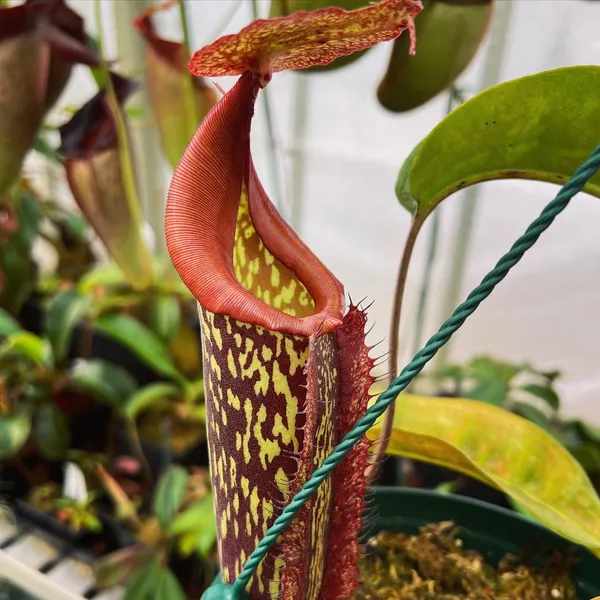 Dark speckled pitcher body, bright red peristome, and prominent lid appendage
Dark speckled pitcher body, bright red peristome, and prominent lid appendage 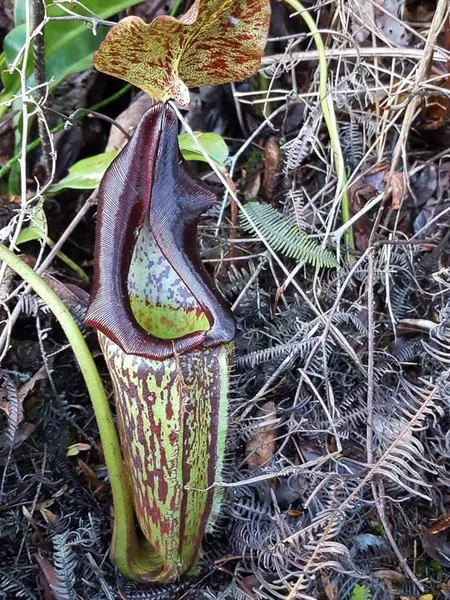 Lower pitcher in-situ, by Laurent Taerwe
Lower pitcher in-situ, by Laurent Taerwe 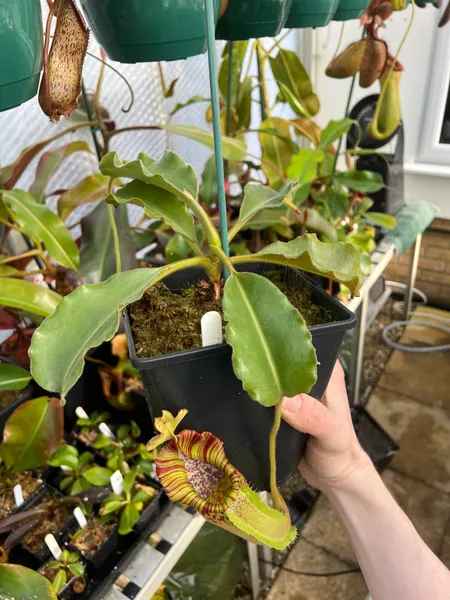 My much-younger Nepenthes maxima 'wavy leaf' - Wicaksono, from seed
My much-younger Nepenthes maxima 'wavy leaf' - Wicaksono, from seed 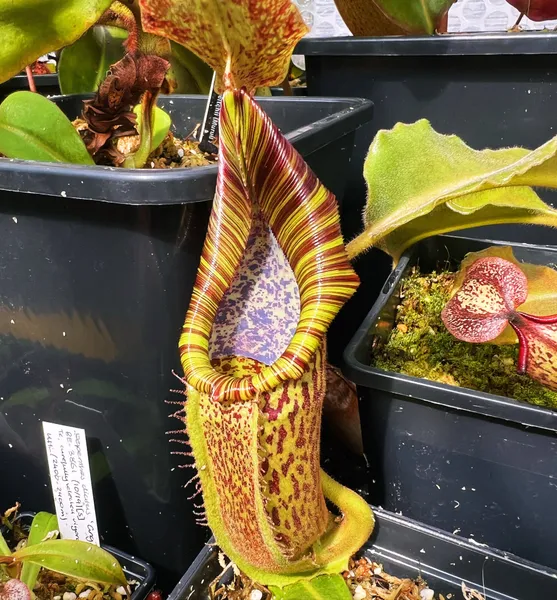 Nepenthes maxima wavy leaf - Wicaksono. This specimen holds its stripes as the pitchers age - it will be great once mature
Nepenthes maxima wavy leaf - Wicaksono. This specimen holds its stripes as the pitchers age - it will be great once mature 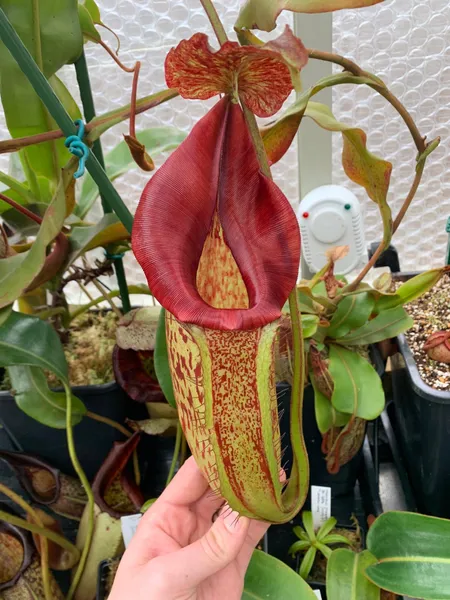 Once mature this clone produces huge, robust pitchers that last for ages - the peristome here will darken to almost black
Once mature this clone produces huge, robust pitchers that last for ages - the peristome here will darken to almost black _%20once%20mislabelled%20as%20N.%20eymae.BYIHVMOo_Z2ldoLi.webp) The famous female clone from Borneo Exotics (BE-3067), once mislabelled as N. eymae
The famous female clone from Borneo Exotics (BE-3067), once mislabelled as N. eymae Description & Care
Nepenthes maxima is an extremely variable species that is widely distributed across Papua New Guinea, the Maluku Islands, and Sulawesi. It was one of the first tropical pitcher plants to be cultivated by the Victorians, and was used in many of their hybrids including Nepenthes × tiveyi (the name given to N. maxima × veitchii) and Nepenthes × mixta (which is N. northiana × maxima), both produced by George Tivey at Veitch Nurseries.
The species’ name comes from the Latin word ‘maximus’, meaning ‘greatest’. I know many fellow Nepenthophiles who would disagree with this assessment, viewing N. maxima as a common and fairly unremarkable species. But I’ve always found it to be a wonderful and rewarding plant to grow. While many forms of N. maxima are cheap and easy to obtain, the species is so variable that you could build a large and diverse collection of rarer forms - dwarf, wavy leaved, all-green, dark, and so on. The species is also notable for its highly dimorphic pitchers: the uppers and lowers are often strikingly different on the same plant.
N. maxima is a vigorous grower and very tolerant, and so makes a great beginners plant. It’s also an excellent breeder - much like N. ventricosa and N. veitchii, hybrids with N. maxima are often attractive and hardy. I grow three forms of N. maxima: the female clone from Borneo Exotics (used extensively in their breeding program), an old red clone from a nursery in Holland, and seed-grown wavy leaf plant originally from Chris Klein (the ‘Wicaksono’ grex).
How I Grow It
| Media | Long fibre sphagnum moss, perlite, and - optionally - orchid bark (2:1:1). |
| Water | Damp but not wet. |
| Light | Very bright, diffused light. |
| Fertiliser | Maxsea or liquid orchid feed in the pitchers, every two weeks. |
| Temperatures | 12°C (54°F) minimum year-round. Doesn't get as stressed by high summer temperatures as my highland plants. |
| Humidity | 70% during the day, rising to over 90% at night. |
Learn more about cultivation with my guide to growing Nepenthes.
Day & Night Temperatures
Nepenthes maxima is a widely distributed species, found at elevations of between 40 and 2600 meters. This range is highlighted in orange above, and equates to temperatures of approximately 19 - 35°C during the day, and 9 - 25°C at night.
See Also
I've written profiles of the following hybrids involving Nepenthes maxima:
Habitat
| Native to | Maluku Islands, New Guinea, Sulawesi |
| IUCN Red List status | Least Concern |
| Natural hybrids | N. eymae, N. glabrata, N. klossii, N. neoguineensis, N. tentaculata |
Buying N. maxima
| Availability | Widely available, though the variety in cultivation is very limited compared to the diversity of this species in the wild. |
| Borneo Exotics codes |
|
| Recommended nursery | California Carnivores Hampshire Carnivorous Plants |
